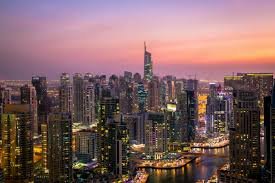Now Reading: “Why Dubai’s Roads May Soon Be Filled Only With EVs 2025!”
-
01
“Why Dubai’s Roads May Soon Be Filled Only With EVs 2025!”
“Why Dubai’s Roads May Soon Be Filled Only With EVs 2025!”
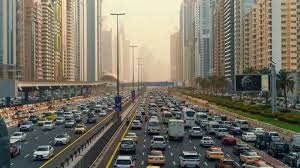
Table of Contents
Dubai is fast becoming a global leader in adopting electric vehicles (EVs). As the city famous for luxury cars, tall buildings, and futuristic technology, Dubai is now making big moves towards a sustainable and eco-friendly future. In this article, we explore how Dubai is pushing electric mobility, why residents are excited about EVs, and what this means for the city’s environment and economy.
Why Dubai Is Focusing on Electric Vehicles
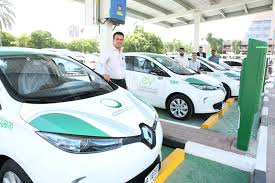
Dubai’s government wants the city to be one of the smartest and greenest cities in the world. One big step towards this goal is the use of electric cars instead of petrol or diesel vehicles. In fact, Dubai has a clear plan: by 2030, 30% of all cars on its roads should be electric or hybrid vehicles.
This target is part of the “Dubai Clean Energy Strategy 2050” and “Dubai Green Mobility Initiative.” The government believes that electric cars can help reduce pollution, cut fuel imports, and create a cleaner environment for future generations.
Incentives to Drive an EV in Dubai
To encourage people to switch to electric cars, Dubai offers many attractive benefits. These include:
- Free Parking Spaces: EV owners can park their cars for free in over 200 spots around the city.
- Free Charging Stations: There are over 350 EV Green Chargers installed across Dubai, and charging is free at these stations for public use.
- Toll Fee Exemptions: EV drivers do not have to pay Salik (toll) fees, making daily travel much cheaper.
- Reduced Registration Fees: The registration cost for electric vehicles is lower compared to regular petrol cars.
These benefits make electric cars a smart and money-saving choice for many people living in the city.
Growing Number of Charging Stations
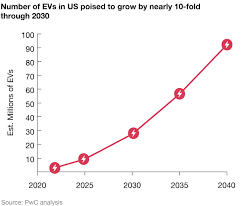
For any city to successfully shift to electric mobility, it must offer enough charging stations. Dubai Electricity and Water Authority (DEWA) has played a big role in this. Under its “EV Green Charger Initiative,” DEWA has installed hundreds of charging points at shopping malls, petrol stations, airports, and public parking areas. These stations are easy to find using mobile apps and maps.
In addition, Dubai plans to add more fast-charging stations to make long-distance travel easier and quicker for EV owners.
Popular Electric Vehicle Models in Dubai
Luxury and innovation are a big part of Dubai’s car culture. It is no surprise that some of the world’s best electric cars are now seen on the streets of Dubai. These include:
- Tesla Model 3 and Model Y: Loved for their design, speed, and advanced technology features like self-driving.
- Porsche Taycan: A high-performance electric sports car that suits Dubai’s taste for luxury and power.
- Nissan Leaf: One of the world’s best-selling affordable EVs, now popular among Dubai’s middle-class buyers.
- BMW iX and Audi e-Tron: Premium SUVs that are both stylish and environment-friendly.
The variety of models available shows that electric cars in Dubai are not just for the rich. Affordable options are also entering the market, helping more people switch to greener transport.
Dubai’s EV Vision: Beyond Personal Cars
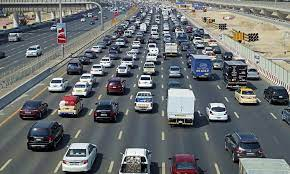
Dubai is not stopping at personal electric cars. The city is also working on making public transport electric. The Roads and Transport Authority (RTA) has introduced electric taxis and is testing electric buses. Soon, tourists and locals may travel in fully electric trams, buses, and even air taxis (flying cars), which Dubai plans to launch in the near future.
This will reduce the city’s carbon footprint and improve the air quality for millions of residents and visitors.
Challenges Dubai Must Overcome
While Dubai is making big progress, there are challenges to solve:
- High Cost of Electric Cars: EVs are still more expensive than petrol cars, though this gap is closing as technology improves.
- Battery Life and Range Anxiety: Many drivers worry about running out of battery during long trips. However, more fast chargers are being installed to ease this concern.
- Recycling Old Batteries: The city must plan ways to recycle or safely dispose of old EV batteries to avoid environmental problems in the future.
Dubai’s government and private companies are working together to fix these issues, making the EV journey smoother for everyone.
The Environmental Benefits Are Huge
By moving to electric cars, Dubai expects to reduce air pollution, lower greenhouse gas emissions, and cut down noise on the roads. This will make the city healthier for residents and more attractive for tourists. Studies suggest that EVs produce 60-70% fewer carbon emissions compared to petrol cars over their lifetime.
What the Future Holds
Experts predict that by 2030, Dubai will have over 40,000 electric vehicles on its roads. More international brands, including BYD, Hyundai, and Mercedes, are launching new EV models in the UAE. Charging infrastructure will also become faster, smarter, and more widespread.
The future looks bright for Dubai’s EV dream. With government support, private investment, and public interest, the city may soon become a global example of green urban transport.
Conclusion
Dubai’s shift towards electric vehicles is not just a trend – it is a major transformation that will impact the city’s economy, environment, and lifestyle. From luxury Teslas to affordable Nissan Leafs, from free charging stations to electric buses, Dubai is serious about building a cleaner, smarter, and more sustainable future on its roads.
For residents and visitors alike, this means a new way to drive – one that is quieter, cheaper, and better for the planet.
Read More:- Shobha Realty Launches Its Most Luxurious Project Yet—Full Details Inside 2025




